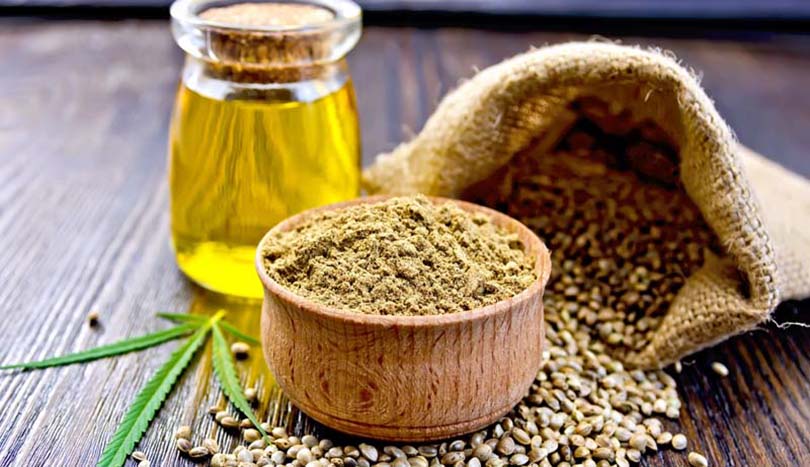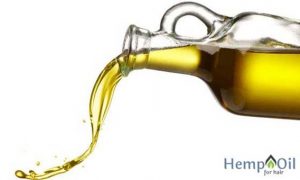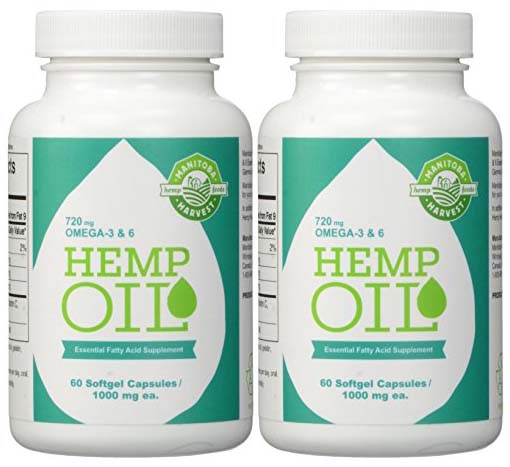
The Fabulous Hair Growth Benefits of Hemp Oil
Hemp Oil For Hair Growth

Hemp (Cannabis) plants typically induce controversy and polarizing reactions (cue weed).
However, it is impossible to ignore that hemp is an incredibly useful plant!
It is used in the production of fuel, paper, wax, resin, pulp, cloth, construction materials etc.
Also, cannabis continues to find favor within the scientific community – it is used as an anti-depressant and some species are even reported to have cancer-fighting abilities!
And did you know that hemp oil has miraculous hair growth benefits?
Related: Hemp Oil for Skin and the overall health benefits
Looks like the world needs more hemp – not only can it solve the energy crisis (biofuel), but it can also help to cure life-threatening diseases and prevent you from going bald!
Why is Hemp Oil Great for Your Hair?
Hemp oil contains essential fatty acids that promote hair growth. It’s high in omega 3, omega 6 and omega 9 fatty acids.
Polyunsaturated fats aid in nourishing and strengthening hair. They also contribute towards radiant skin.
Hemp oil is rich in gamma linolenic acid. Thus, it helps to prevent a dry scalp and frizzy, lifeless hair.
Hemp oil is high in protein – proteins are the building blocks of the body.
In fact, your hair is 97% protein (keratin).
Hemp oil gives hair a natural shine and allure; it improves the overall quality of hair and triggers the growth of new hair follicles.
The amino acids found in hemp are similar to those found in milk, eggs, soy and meat, therefore, Hemp is a rich source for minerals such as iron, magnesium and zinc.
Is there any scientific research to prove that hemp oil does indeed have hair growth benefits?
Yes! The University of Maryland Center and the Journal of Agricultural and Food Chemistry have conducted extensive research on hemp oil.
Their results confirm that hemp oil contributes to better hair growth and prevents breakage.
Hemp Oil is featured in a number of books, health magazines and websites.
How to Use Hemp Oil for Hair Growth?
- Apply directly to the scalp
- Include Hemp Oil in your diet
Apply to your Scalp
You can apply hemp oil directly onto hair and the scalp. Massaging it onto the scalp helps to moisturize the area and also improves blood circulation.
The increased flow of oxygenated blood stimulates hair growth.
Include in your Diet
Including hemp oil in your diet is another great way of benefiting from its nutritional properties.
Most people do not get enough essential fatty acids.
Hemp oil can be used just like flaxseed oil or olive oil. It can be added to salad dressings and dips. It actually tastes pretty good too!

Take Care of Your Hemp Oil – Why?
Note that hemp oil oxidizes pretty easily (goes rancid) and hence it should not be left outside in bright sunlight.
It is best to leave it in a cool and dark place or to refrigerate it.
Also, hemp oil should not be heated to very high temperatures – this destroys the nutrients contained within it.
For best results, include hemp oil in your diet and also apply it externally a couple of times a week!
Is Hemp Oil Legal?
Yes, perfectly legal! All hemp is not marijuana and you will not experience a high when you consume hemp oil.
Marijuana contains the compound tetrahydrocannabinol (THC) which is responsible for psychoactive effects in the body.
Hemp oil is manufactured from a different strain of cannabis plants and does not contain THC.
Hence, it is totally safe and legal to consume hemp oil.
In fact, it is an essential component of many health foods and hair care products such as shampoos, conditioners etc.
Try hemp oil today to experience its fantastic hair growth benefits first hand!
Disadvantages of Hemp Oil
Almost all hemp oil products in the market offer you advantages for cosmetic and cooking purpose. This vegetable oil indeed does plenty of good things, but you need to be aware of its limitations also.
One of its weakest points is that hemp oil is extracted from Cannabis plant that contains THC (Tetrahydrocannabinol). This is simple not true, read here for more about this.
This substance can be considered addictive. Other disadvantages of hemp oil are as follows.
1. Short Shelf Life
When stored improperly, hemp oil quickly deteriorated into a useless liquid. All essential oils naturally need to be properly stored, but hemp oil is one of the worst types among other similar vegetable oils. All essential oils containing essential fatty acids have short lives, especially when extracted without using solvent. However, you need to be more careful with hemp. Exposures to light and oxygen may also cause the hemp oil to go rancid easily.
Hemp oil has to be stored in dark location and sealed tightly to prevent oxygen from penetrating the container or bottle. Unrefined hemp oil should be frozen or refrigerated as well.
2. Strong Taste
Hemp oil commonly has strong nutty flavor, but it actually depends of the manufacturing processes. Products from different brands have different taste and smell as well. Physically, this oil has deep green color simply because of its high concentration of chlorophyll. When used as an ingredient for foods, hemp oil delivers its distinguishable taste and smell to the foods.
To accommodate the smell, some products also use fragrance in the mixture especially for cosmetic purpose. You should be very careful with other chemicals mixed with the oil. Read the labels and list of ingredients to avoid allergic reactions.
3. Cannot be used for Frying
Every vegetable oil has a boiling point. If processed over its boiling point, the chemical structure will be altered and the oil becomes generally useless. You can use hemp oil for almost all types of foods, but you cannot use it for frying. The boiling point of hemp oil is approximately 212-degree Fahrenheit. When processed in higher temperature, its polyunsaturated fatty acids transform into peroxides.
Under lower temperature exposure, the oil will be less destroyed. In other words, you can acquire the benefits of hemp oil by slow cooking which commonly uses very low temperature.
